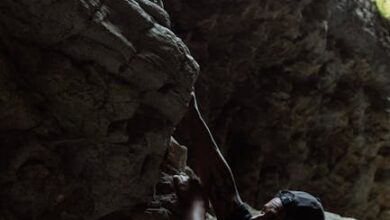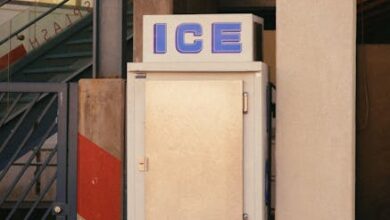Best Free Birthday Rewards

Hey birthday buddies! Who doesn’t love free stuff, especially when it’s celebrating YOU? Your birthday is the perfect excuse to treat yourself, and tons of companies want to help you do just that! I’m here to spill the tea on the absolute best free birthday rewards you can snag. Get ready to sign up, celebrate, and save!
Food, Glorious Food (for Free!)
Let’s be honest, one of the best parts of any birthday is the food! Thankfully, many restaurants offer awesome freebies to help you indulge on your special day. Here are some of my favorites:
Starbucks: If you’re a Starbucks Rewards member, you get a free drink or food item! Just make sure you join the program at least seven days before your birthday, and you’ll find your reward waiting for you on the app. Pro tip: treat yourself to that fancy Frappuccino you’ve been eyeing!
Dunkin’: Another coffee giant offering birthday perks! As a DD Perks member, you’ll get a free beverage of any size. A great way to kick off your birthday morning.
Baskin-Robbins: Ice cream on your birthday? Yes, please! Join the Baskin-Robbins Birthday Club and receive a free scoop of ice cream. It’s a classic birthday treat that’s hard to beat.
Krispy Kreme: Doughnuts are a birthday breakfast essential! Sign up for Krispy Kreme Rewards and you’ll get a free doughnut of your choice on your birthday. Maybe even grab a dozen to share (or not!).
Panera Bread: MyPanera members often receive a free pastry, sweet treat, or even a discount on a meal during their birthday month. The rewards can vary, but it’s always a tasty surprise.
Red Robin: Craving a burger? Join Red Robin Royalty, and you’ll get a free burger during your birthday month. They have so many delicious options, it’s hard to choose just one!
IHOP: Pancakes are the perfect birthday breakfast (or lunch, or dinner!). Sign up for IHOP’s rewards program, and you’ll receive a free stack of pancakes on your birthday. Fluffy, delicious, and free – what more could you want?
Sephora: Okay, this isn’t food, but it’s definitely a treat! Sephora Beauty Insiders get a free birthday gift, which changes throughout the year. It could be a skincare set, makeup, or something else entirely. It’s a great way to try new products.
Ulta: Similar to Sephora, Ulta also offers a free birthday gift to Ultamate Rewards members. The gift varies, but it’s always something fun and beauty-related. Plus, you might even get a bonus coupon!
Other Awesome Birthday Freebies
Beyond food, there are plenty of other companies that want to celebrate your birthday with you. Here are some more free rewards to check out:
DSW: DSW VIP members typically receive a birthday offer, which could be a discount or a free gift. If you love shoes, this is a must-sign-up!
AMC Theatres: AMC Stubs members often get a free popcorn or drink on their birthday. Perfect for a birthday movie night!
Kohl’s: Kohl’s Rewards members receive a special birthday offer, usually in the form of a percentage-off coupon. A great opportunity to snag something you’ve been wanting.
World Market: World Market Rewards members typically receive a birthday coupon, often for a percentage off your purchase. Time to stock up on unique and delicious goodies!
Tips for Maximizing Your Birthday Rewards
To make the most of these birthday freebies, here are a few tips:
Sign up in advance: Most programs require you to sign up at least a week or two before your birthday to receive the reward. Don’t wait until the last minute!
Use a dedicated email: Consider using a separate email address for reward programs to avoid cluttering your main inbox.
Check your email/app: Make sure to check your email or the app associated with the reward program to claim your birthday offer. Some rewards are automatically added, while others require you to activate them.
Read the fine print: Pay attention to any restrictions or expiration dates associated with the birthday reward. Some offers are only valid on your actual birthday, while others are valid for a week or even a month.
Combine with other offers: See if you can combine your birthday reward with other coupons or discounts to save even more money.
Are There Any Downsides?
While free birthday rewards are awesome, there are a few things to consider:
Email spam: Signing up for multiple reward programs can lead to a lot of emails. That’s why using a dedicated email address is a good idea.
Impulse purchases: Be careful not to make unnecessary purchases just to use a birthday coupon. Stick to your budget and only buy things you actually need or want.
Data privacy: Keep in mind that when you sign up for these programs, you’re sharing your personal information with the company. Read their privacy policy to understand how your data will be used.
Frequently Asked Questions
How do I find out about more birthday freebies?
A quick Google search for “birthday freebies” or “[your favorite store] birthday reward” can uncover even more offers. There are also websites and blogs dedicated to listing birthday freebies.
What if I don’t want to sign up for a rewards program?
Some companies may offer birthday discounts or freebies without requiring you to join a formal rewards program. It’s always worth asking!
Can I use multiple birthday rewards on the same day?
Absolutely! That’s the whole point! Plan a fun day hopping from place to place to redeem all your freebies.
What if I miss my birthday?
Some rewards programs offer a grace period, allowing you to redeem your birthday reward a few days before or after your actual birthday. Check the terms and conditions of each program.
Are these rewards really “free”?
Yes, these rewards are genuinely free, but they are designed to encourage you to become a loyal customer. The company hopes that by giving you a freebie, you’ll be more likely to return and make future purchases.
So there you have it – a whole bunch of ways to score free stuff on your birthday! Remember to sign up in advance, read the fine print, and most importantly, have fun celebrating YOU! Happy birthday, and happy freebie hunting!
Related Posts
| Best Free Birthday Stuff |



